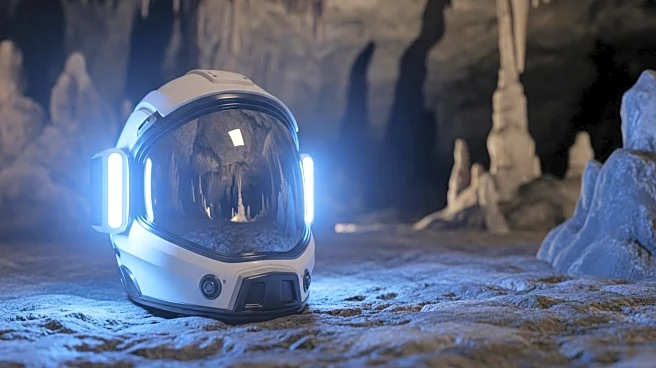What is the story about?
What's Happening?
An international team of astronauts, including NASA's Jasmin Moghbeli, JAXA's Makoto Suwa, and Mohammad Al Mulla from the Mohammed Bin Rashid Space Center, participated in a rigorous simulation in the Italian Apennine mountains. The exercise was part of the European Space Agency's CAVES training program, designed to mimic the challenges of space exploration. The team navigated steep and uneven terrain, overcame vertical drops using rope techniques, and established a temporary base in a cave. During the simulation, they monitored environmental changes, sampled microbial life, and tracked radon and carbon dioxide levels, activities crucial for long-duration space missions.
Why It's Important?
This simulation highlights the importance of international collaboration in space exploration. By training in environments that parallel the isolation and challenges of space, astronauts can better prepare for missions that require resilience and teamwork. The data collection and monitoring activities conducted during the simulation are vital for understanding environmental impacts and ensuring the safety and success of future space missions. Such training programs enhance the capabilities of astronauts from different countries, fostering a global approach to space exploration and scientific research.
What's Next?
The insights gained from this simulation will likely inform future training programs and mission planning. As space agencies continue to collaborate, there may be increased opportunities for joint missions and shared research initiatives. The success of such simulations could lead to more comprehensive training programs that incorporate diverse environments, further preparing astronauts for the complexities of space travel. Additionally, the data collected during these exercises may contribute to advancements in environmental monitoring technologies used in space missions.
Beyond the Headlines
The ethical and cultural dimensions of international collaboration in space exploration are significant. By working together, astronauts from different backgrounds can share knowledge and perspectives, promoting a more inclusive approach to scientific discovery. This collaboration also underscores the importance of peaceful cooperation in space, setting a precedent for future endeavors. The training program's focus on environmental monitoring reflects a growing awareness of the need to protect and understand our planet, even as we explore beyond it.















